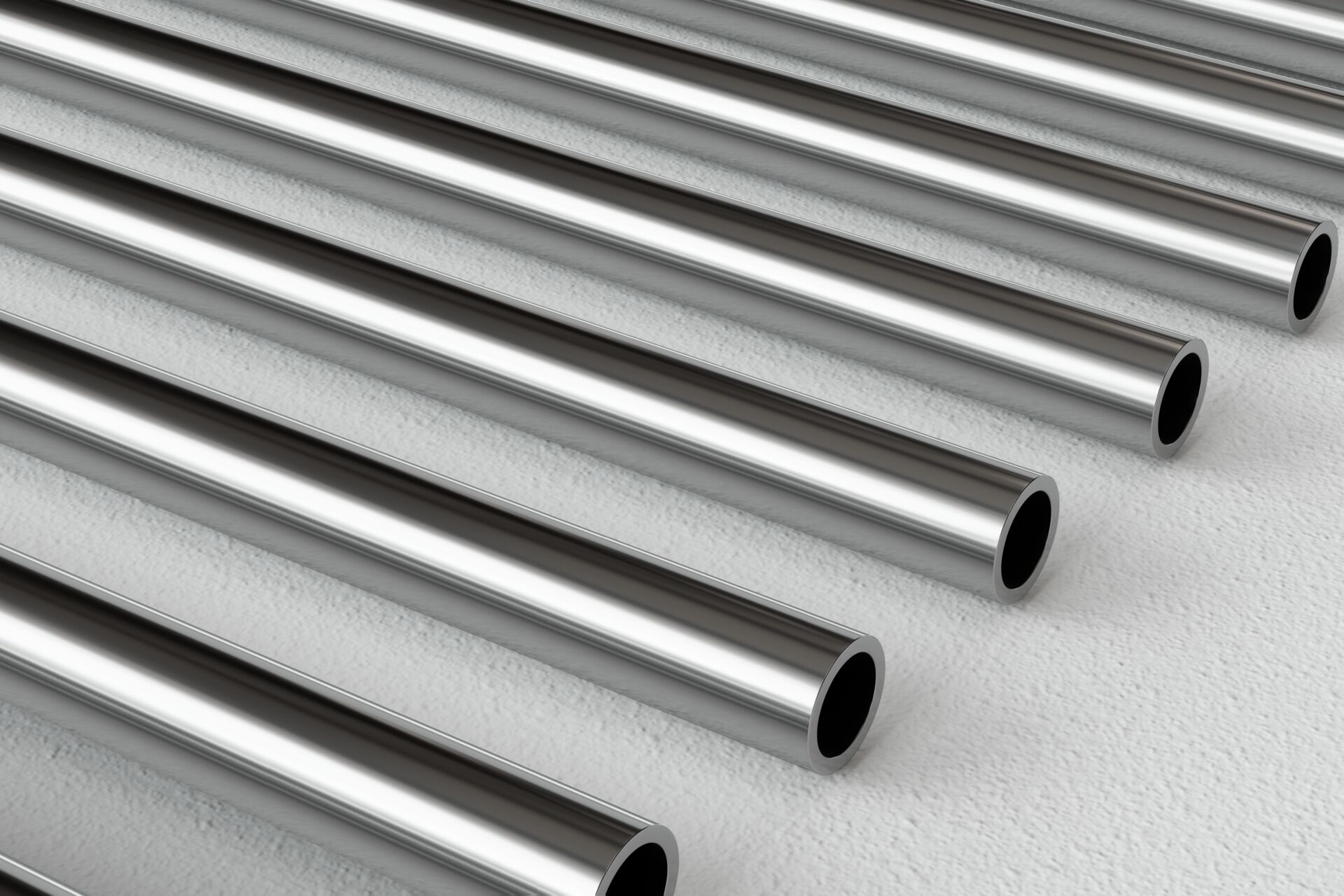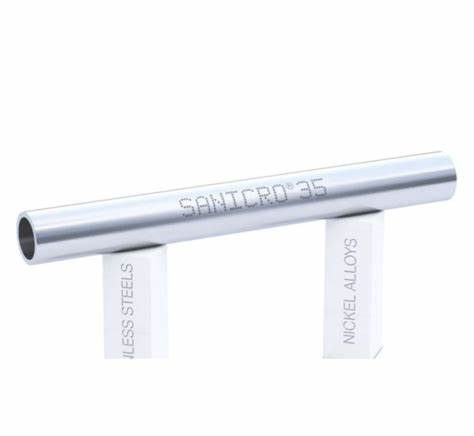Chemical products can be found in numerous places in contemporary society. They play a part in everything from plastics to the tires on our vehicles, our clothes, and digital devices, as well as in packaging, fertilizers, and medical equipment, perfumes, pharmaceuticals, insecticides.
Sharath Satish, President of Alleima Tube division in the Asia-Pacific (APAC) region, explains how the demand for chemicals and plastics is driven by the rapid economic growth of emerging economies, increased population, and median income, all of which will lead to demand for consumer goods.
Demand for consumer goods drives growth
“The Chemical and Petrochemical market is driven by demand in end-use industries like automotive, consumer goods, medical equipment, plastics for packaging, construction, textiles, and other industries,” he says, adding that this will in the coming years be driven by a combination of growing economies in developing countries in Asia, rising populations, increasing consumption and technological development.
Sharath adds that the Serviceable Available Market (SAM) size for the Chemical and Petrochemical market was estimated to be SEK 27.7 billion in 2022, with a growth projection of approximately seven percent per annum from 2022 to 2027.
What are Chemicals and Petrochemicals?
Chemicals and Petrochemicals are products mainly obtained from petroleum and natural gas. In some instances, some chemicals could also be produced from other sources such as coal, coke, or vegetable products.

Products made from Chemicals and Petrochemicals include items such as solvents, detergents, adhesives, paints, plastics, fertilizers, packaging, medical equipment, clothing, construction materials, household appliances, and healthcare products and polymers like synthetic rubber and nylon.
According to OPIS Chemical Market Analysis, 2022, Northeast Asia accounted for 50% of the 2022 global consumption, followed by the U.S. (15%), Western Europe (9%), and the Middle East (9%).
Market outlook
The International Energy Agency (IEA), an autonomous intergovernmental organization that provides policy recommendations, analysis, and data on the global energy sector, says growing demand for chemical and petrochemical products means that they are set to account for over a third of the growth in oil and gas demand to 2030, and nearly half to 2050, ahead of trucks, aviation and shipping.
On the whole, the general consensus is that the market will continue to grow. This is where Alleima comes in. Advanced tubing products from Alleima have a unique set of properties that make them ideally suited to the demands of this challenging segment.
Advanced tubing supporting production
The chemical and petrochemical value chain goes through several stages during which raw materials such as oil or natural gas are first turned into the building blocks in the manufacturing of petrochemicals called base chemicals which include ethylene, propylene, butadiene, benzene, toluene, xylene, and then into several kinds of intermediaries such as acetic acid, formaldehyde, urea, melamine or Purified Terephthalic Acid (PTA) and thereafter processed to final products. The final products can range from items such as plastics, electronics, detergents, pharmaceuticals, fibers, etc.
 Alleima tubing plays a key role in several critical processes and in the production of different chemicals and petrochemicals.
Alleima tubing plays a key role in several critical processes and in the production of different chemicals and petrochemicals.
Alleima tubes and pipes are used for the manufacture of fertilizers in high-pressure parts of the urea process, hydraulic and instrumentation tubes are used to monitor temperature, pressure, and processes in various chemical and petrochemical plants, and heat exchanger tubes are used for heat transfer between different corrosive process media in condensers, evaporators, heaters and reheaters for the chemical and petrochemical plants where safety and reliability of performance are of critical importance.
An example is in the production of fertilizers, tubes from Alleima are the stripper tubes in advanced materials specially developed for the most critical parts of the urea process. Alleima urea stripper tubes are acknowledged for their exceptional ability to resist corrosion in highly aggressive corrosive environments.
Another example of a segment where advanced tubes from Alleima play a pivotal role is in the production of Pure terephthalic acid (PTA) an important petrochemical raw material used in the production of textile fibers and yarns. Advanced tubes are also used in several critical heat exchangers in processes, where reliability and integrity of the equipment are of the critical essence for enhanced output.
Several Alleima alloys such as Alleima® Ti Grade 2, SAF™ 2205, 2RK65, and our latest innovation Sanicro® 35 are well-suited for the production process of PTA.
"Our portfolio of high-temperature tubes includes a wide range of alloys, which can be used at temperatures above 500 degrees Celsius and contribute to applications like ethylene furnace tubes, recuperator tubes for heat recovery for the carbon black industry, thermocouple protection tubes for the petrochemical industry all of which are characterized by long service life and enables reduced maintenance costs and increased uptime of these plants", explains Sharath.
Alleima’s comprehensive range of corrosion-resistant hydraulic and instrumentation tubes in stainless steel and nickel alloys are typically used in the critical applications of control, monitoring, and measuring across a wide range of demanding industries, including petrochemical plants. Hydraulic and instrumentation tubes are supplied in straight lengths or in coiled form and are renowned for their safe and reliable performance in the toughest environments. They are characterized by smooth surfaces, high cleanliness, and tight tolerances reducing the risk of leakages when connecting the tubes with fittings.
Superior mechanical performance and corrosion-resistance
As a leading expert in materials technology, Alleima develops materials that are lighter, stronger, more corrosion-resistant, and withstand higher temperatures and higher pressures.
"Our materials often have superior qualities when it comes to mechanical performance and corrosion resistance which contribute to improved productivity, reliability, and cost efficiency ", explains Sharath Satish.
An important Alleima innovation in this context is the Sanicro® range, more recently Sanicro® 35.
 “The Sanicro® 35 grade is a super austenitic stainless-steel alloy designed for service in aggressive corrosive environments, the material bridges gaps between standard duplex or austenitic grades and nickel alloys. When it comes to heat exchangers or hydraulic instrumentation, Sanicro® 35 is a more robust alloy than other austenitic or super-austenitic steel grades and a great alternative to nickel alloys due to its ease of fabrication, versatility, and stability, it can replace several grades like 6Mo alloys, Alloy 825, and Alloy 625 in chemical and petrochemical plants”, explains Satish.
“The Sanicro® 35 grade is a super austenitic stainless-steel alloy designed for service in aggressive corrosive environments, the material bridges gaps between standard duplex or austenitic grades and nickel alloys. When it comes to heat exchangers or hydraulic instrumentation, Sanicro® 35 is a more robust alloy than other austenitic or super-austenitic steel grades and a great alternative to nickel alloys due to its ease of fabrication, versatility, and stability, it can replace several grades like 6Mo alloys, Alloy 825, and Alloy 625 in chemical and petrochemical plants”, explains Satish.
“The quality of our tubes based on our deep materials know-how and high-technology production methods ensures that they meet the demanding customer specifications for critical applications, often setting industry standards in terms of longer product lifecycle,” continues Satish, who argues that the safety and integrity of the tubes are key when it comes to demanding application areas such as these.
“This is why our tubes are preferred by both licensors and the end users,” he concludes.